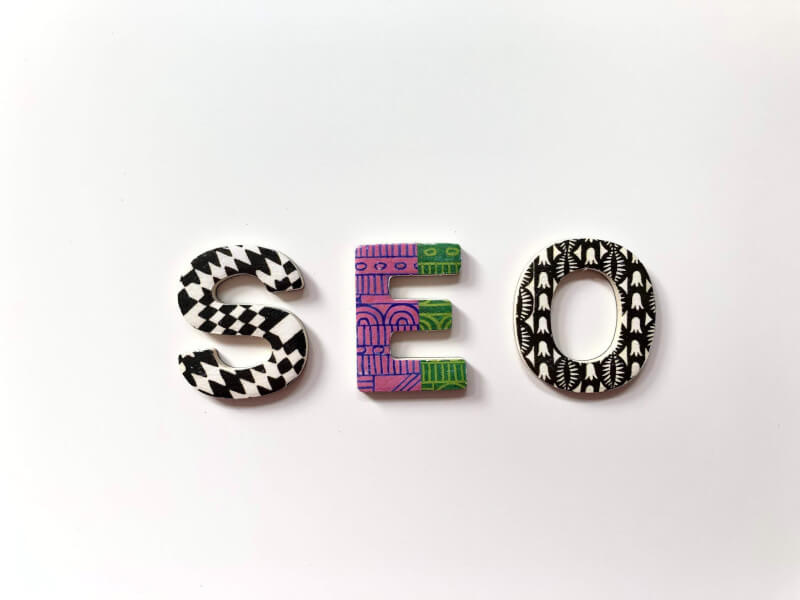Search engine optimization (SEO) has the potential to be a crucial component of any complete internet marketing strategy. Search engine optimization (SEO) can help people find your business, increase consumer confidence in your brand, and boost your site’s conversion rate. You can use SEO in a variety of ways, and you can even mix elements of SEO marketing with certain other methods of promoting your company. This article provides an overview of SEO marketing, discussing its significance, operation, and the various digital marketing methods that can be merged with it.
Can You Explain Search Engine Optimisation to Me?
SEO, which stands for “search engine optimization,” is a method for boosting a website’s natural search engine results rankings and, by extension, its volume and quality of visitors. The term “natural traffic,” which is the result of SEO efforts, describes the site’s visitors who come from unpaid, user-generated searches. By omitting pay-per-click visitor advertisements and direct traffic, SEO also enhances natural results.
Using SEO, you can boost your website’s visibility in search engines and your viewer reach. On-page and off-page search engine optimisation are two components of several techniques that can boost your site’s top-notch traffic.
Different Forms of Search Engine Optimisation
Both on-page and off-page SEO (Search Engine Optimisation) is important for successful SEO campaigns:
On-page SEO
This refers to the aspects of search engine optimisation that can be modified directly in the actual web content and pages. On-page SEO includes activities like keyword research, building internal links, and making user-friendly site navigation. With on-page SEO, you can control how and where your site appears in results from search engines by tailoring which pages and content pieces are indexed and prioritised.
Off-page SEO
While this may be affected by the SEO settings you’ve implemented on your webpage, off-page SEO is generally under the aegis of search engines. You could, for example, endorse your offerings by writing articles for a website that caters to a similar audience. Your partner site could feature backlinks, or inbound links, that bring people back to your own. Since you are employing off-page SEO techniques, you have very little say over where the partner site will appear in the search engine results.
How Does Search Engine Optimisation Function?
When a user types a question into a search engine, the results should be relevant and helpful. Keywords and phrases typed into a search engine’s search field represent a user’s queries or searches. The search engine reacts to this by requesting the URLs of the websites it considers to be the most pertinent to the user’s request. Numerous essential components can be responsible for the success of SEO in the search engine’s overall method for locating and displaying findings.

When talking about search engine results pages (SERPs), rankings refer to where your website appears. A high position on a search engine results page (SERP) indicates that your site’s content is authoritative about the types of searches its visitors make, as well as its relevance to the topic field. Gaining a prominent position in search engine results pages (SERPs) can have a positive impact on marketing efforts and search engine optimization (SEO) efforts by driving more visitors to your website. Generally speaking, search engines assign a site’s ranking to its content. When search engines crawl your website for indexing, they will calculate its relevance.
Indexing
Search engines index the web for relevant content and rank the resulting list of URLs accordingly. If a user types in “kinds of sewing needles,” for example, they might hope to see information URLs that are specifically about those needles. If your site’s primary content is related to software design, you can expect low search engine rankings. You can expect a change in your website’s position in search engine results pages (SERPs) based on how specific search engines find your website’s content to be. Furthermore, search engines use a procedure known as crawling to discover the specific pieces of information contained in a website that is most relevant to a user’s query.
Crawling
At the outset of any user query, a search engine will scour the web for the most pertinent content based on the user’s input. To some extent, how you implement SEO on your website can affect how long it takes search engines to crawl it. The quicker your content URLs are discovered by search engines, the sooner your site will show up in search engine results pages.
How Crucial Search Engine Optimisation is for Advertising
The use of search engine optimization (SEO) during a promotional campaign can be extremely effective. This is due in part to the fact that search engine optimization (SEO) allows websites to attract relevant visitors without having to spend money on paid search placement. Visitors who have specifically sought out the goods or services you offer are considered “top-notch traffic.” Quality traffic is additionally generated when people actively seek it out by typing in a relevant keyword or phrase. It’s occasionally challenging to attract targeted visitors, which is why search engine optimization strategies may be useful for your marketing effort. SEO may be an integral part of your advertising strategy for several other important reasons:
- Creates credibility as an expert in your field
- Offers a Low-Priced Strategy for Advertising
- Improves your site’s discoverability by decreasing the manipulation of search results of high quality
- Creates credibility as an expert in your field
Google and Bing will only return results that are both authoritative and relevant. Ranking highly in search engine results pages (SERPs) indicates that your website is credible and an authority in its field. Trying to establish yourself as a go-to resource for search engines can be helpful in many ways, including generating revenue from your SEO marketing efforts.
Offering a Low-priced Method of Advertising
A further reason why SEO is crucial is that it helps companies save money on generating leads and stick to their marketing budgets. If your site ranks highly in a search engine, you may be able to attract more visitors without having to spend any money on advertising.
Improves Search Results by Reducing Manipulation
Low-relevancy sites have a more difficult time manipulating their positions in the top SERPs due to the algorithms used by many search engines to rank websites. This ensures that when people search on the internet, they will only be directed to appropriate and high-quality results. Your search engine rankings can be improved without the risk of having subpar content appear ahead of yours by making certain that your site only offers specialty content that creates authority and confidence.
Improves How Often People Stumble Upon Your Website
Search engine optimization (SEO) can help increase your site’s discoverability in search engines. If you have applicable on-page optimisation like good content, well-organised navigation, and meaningful internal links, search engines will be capable of discovering and indexing your site more quickly and accurately.
Internet Marketing Campaigns That Prioritise Search Engine Optimisation
When used in conjunction with other forms of digital advertising, search engine optimization can be quite effective. You can use search engine optimisation (SEO) in many of the following marketing strategies:
Promoting Products or Services Through Social Media
Through the use of search engine optimization (SEO), marketing on social media can be utilised to increase brand awareness, sales, and conversions. Search engine optimization (SEO) in the form of keywords, names, or phrases can be used to boost a social media profile’s visibility, as each platform has its own set of algorithms. Once you’ve optimised your social networking pages for search engines, people looking for businesses like yours on social networking sites or via search engines will be able to find you.
Promotional Content Writing
Since most blog and article content includes keywords or phrases that a consumer could be looking for info on, content marketing is certainly the technique people use for SEO. A vitamin store, for example, might start a blog covering industry-related topics to better inform prospective consumers and draw in new site visitors. Therefore, the company may use content marketing to help it rank higher in search engine results for competitive keywords and/or brand names. Using external content strategists to help boost your blog promotion is another alternative that many businesses use. Click here for more information.
Marketing Through Influencers
To increase website traffic and ultimately sales, businesses often use “influencer marketing,” which involves public figures with a sizable following. Because your influencer will have access to particular keywords that will lead directly to your content, search engine optimization (SEO) is a powerful tool for influencer marketing. The two strategies of social media marketing and influencer marketing are often used together.
Effective search engine optimisation (SEO) in marketing can also have long-term effects, and you can boost the likelihood that your material will show up on the first page of main search engines’ results pages if you produce high-quality content that is appropriate for your intended audience.





